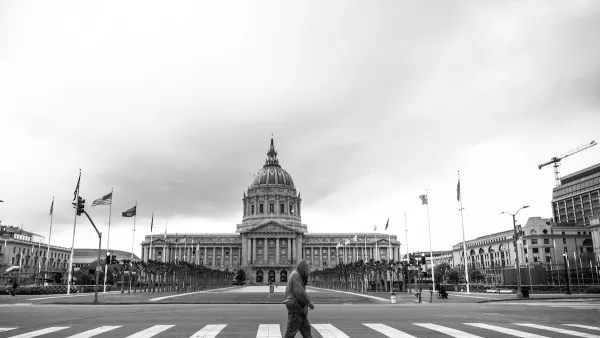A city law enacted in 2006 was intended to protect San Francisco's independent stores from the spread of chain - or 'formula' - stores. Stacy Mitchell explains the gaps in the current law and the efforts of one city Supervisor to tighten it.
While "No other large American city has done as much to check the spread of chain stores as San Francisco," enduring fears that an influx of chain stores will "erode the city's distinctive character" and "weaken its economy" have some concerned leaders, like Supervisor Eric Mar, who chairs the city's Land Use and Development Committee, looking into ways to tighten the city's formula business policy.
So what about the law isn't working? "While the law has deterred some formula businesses from applying and blocked permits for others," writes Mitchell, "dozens have either won approval in neighborhood business districts or opened in areas of the city not included in the policy. Target, for example, has been granted a permit to open a store in one neighborhood business district and has another in the works in a zone not covered by the policy."
According to Mitchell, Mar plans to introduce legislation in the coming months to address some of the perceived loopholes. "He envisions adding new criteria for large formula businesses that would take into account their large market areas and include a comprehensive economic impact review. He also wants to expand the law to cover more of the city's commercial districts."
"Mar has already helped fix one part of the policy that has long vexed some neighborhoods: branches of big banks are not counted as formula businesses. In June, the Board of Supervisors passed Mar's measure to bring banks under the policy, much to the relief of people living in areas where Chase and Bank of America have opened dozens of branches, leaving less space for other types of stores."
Thanks to smitchell
FULL STORY: How San Francisco is Dealing With Chains

Planetizen Federal Action Tracker
A weekly monitor of how Trump’s orders and actions are impacting planners and planning in America.

Chicago’s Ghost Rails
Just beneath the surface of the modern city lie the remnants of its expansive early 20th-century streetcar system.

Amtrak Cutting Jobs, Funding to High-Speed Rail
The agency plans to cut 10 percent of its workforce and has confirmed it will not fund new high-speed rail projects.

Ohio Forces Data Centers to Prepay for Power
Utilities are calling on states to hold data center operators responsible for new energy demands to prevent leaving consumers on the hook for their bills.

MARTA CEO Steps Down Amid Citizenship Concerns
MARTA’s board announced Thursday that its chief, who is from Canada, is resigning due to questions about his immigration status.

Silicon Valley ‘Bike Superhighway’ Awarded $14M State Grant
A Caltrans grant brings the 10-mile Central Bikeway project connecting Santa Clara and East San Jose closer to fruition.
Urban Design for Planners 1: Software Tools
This six-course series explores essential urban design concepts using open source software and equips planners with the tools they need to participate fully in the urban design process.
Planning for Universal Design
Learn the tools for implementing Universal Design in planning regulations.
Caltrans
City of Fort Worth
Mpact (founded as Rail~Volution)
City of Camden Redevelopment Agency
City of Astoria
City of Portland
City of Laramie




























